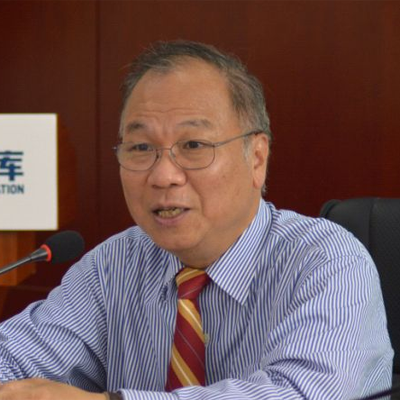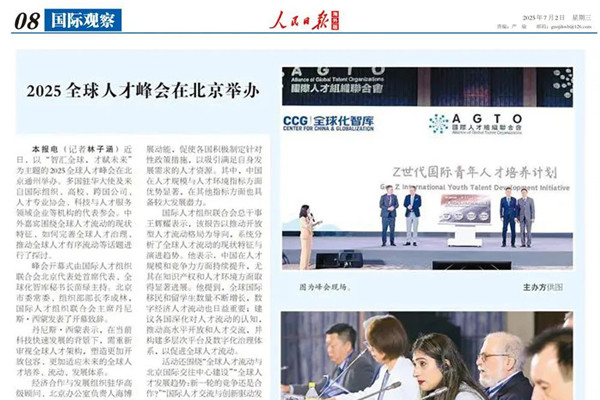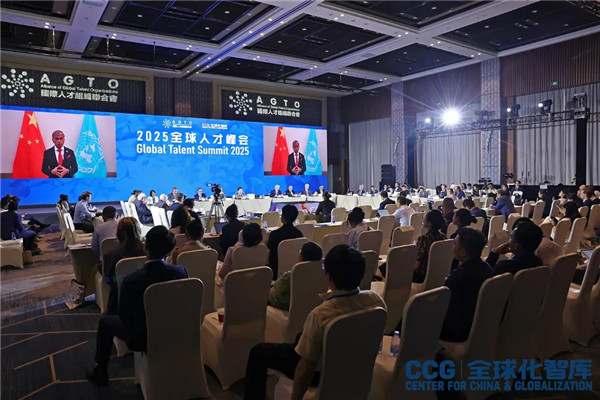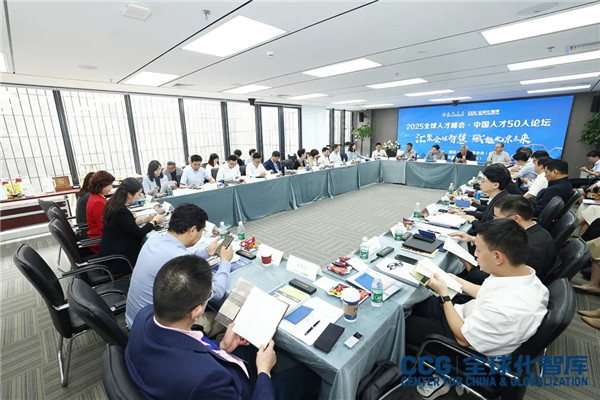【凤凰网】全球战“疫”观察 23 | 胡永泰的疫情经济观
2020年4月23日
当全球经济和贸易受到疫情的冲击,近期各国都推出了相对积极的财政政策,这些政策是否能奏效?美国加州大学戴维斯分校经济系教授胡永泰,为我们分析什么样的金融政策能够帮助经济从疫情冲击下恢复过来?全球化智库(CCG)联合凤凰卫视推出抗疫特别系列节目,多维度视角解读疫情下的政治经济文化,周一至周五19:15 – 19:20,凤凰卫视中文台播出。
【节目背景】
在新冠肺炎疫情全球蔓延背景下,全球化智库(CCG)与凤凰卫视携手策划针对疫情的国际观察节目。节目着眼于人类命运共同体及全球化高度,以真实、理性、务实为基点,通过与国内外知名专家学者面对面访谈或视频连线,深度解读全球新冠肺炎疫情期及恢复期的疫情控制、中外关系、全球合作、贸易政策、公共卫生、全球治理体系改革、应急管理体系完善、污名化等话题,从多维视角探讨疫情对全球发展的影响。
文字实录 | 胡永泰的疫情经济观
本期嘉宾

胡永泰,CCG学术委员会专家,美国加州大学戴维斯分校经济系教授。
凤凰卫视主持人朱梓橦:当全球经济和贸易受到疫情的冲击,近期各国都推出了相对积极的财政政策,这些政策是否能奏效?今天我们请来来自美国加州大学戴维斯分校经济系教授胡永泰,为我们分析什么样的金融政策能够帮助经济从疫情冲击下恢复过来?
How’s the situation in California? Now, how has this pandemic affected the silicon valley companies? The tech companies?
(加州的情况怎么样?疫情是如何影响硅谷的这些科技公司的呢?)
胡永泰:It certainly has caused the freeways to be no longer crowded. And the internet. But the people who are suffering are not a tech companies. The big problem is with the service industries like restaurants, tourism,the question is the high tech people are not losing their job then unlikely to lose their job. But it is the poorer segments of the population that are paying the price of the sugar.
(它确实使高速公路不再拥挤,但遭受损失的不是科技公司,最大的问题是服务行业,像餐馆,旅游业。高科技人员没有失去他们的工作,他们也不太可能失去他们的工作,人口中较贫穷的群体在付出代价。)
主持人:How do you think these technologies and tech companies can help people recover from this pandemic? In terms of changing people’s lifestyles and adjusting to what the pandemic has caused.
(您认为这些技术和科技公司如何能帮助人们从这场疫情中恢复过来? 在改变人们的生活方式,适应疫情带来的影响方面。)
胡永泰:I don’t think technology companies, ken. help us recover quicker from covet 19 because the real recovery will come from the development of quick testing kids so that you can know within five minutes whether the person has the disease or not. What scene is unlikely to come before one year?
(我不认为是科技公司可以帮助我们从新冠病毒中更快地恢复,因为真正的恢复将来自于快速检测(技术)的发展,这样你就可以在五分钟内知道这个人是否患有疾病。在一年内疫苗不太可能出现。)
There will be a big change in the world was faster. Online companies, the internet companies become more important than before because there be a shift of a lot of economic activities online. This may well be a turning point in the way that a lot of industries deliver their services, education is, I think, going to be hastening a lot more online instruction health care will be also moved more and more online
(世界将会有一个大的变化。网络公司变得比以前更重要了,因为会有很多经济活动的线上转变。这很可能是一个转折点,在许多行业提供服务方式方面。我认为,教育将会加速出现更多在线指导,医疗也将转变开展更多的线上服务。)
The 3rd one is, of course, retail,because most people will be ordering more goods on platforms. And here comes a policy question. Right now, most shopping platforms have been monopolized by a few companies.It’s hard to think of an alternative to Amazon in the united states, just like it’s hard to think of an alternative to alibaba in China. So // the kind of a very big internet company monopolizing a particular industry that we have to think about how to make that more competitive.
(第三个当然是零售,因为大多数人会在平台上订购更多的商品。现在有一个政策问题。目前,大多数购物平台都被少数几家公司垄断。在美国很难找到亚马逊的替代品,就像在中国很难找到阿里巴巴的替代品一样。当一个非常大的互联网公司垄断了一个特定的行业时,我们必须考虑如何使这个行业更具竞争性。)
主持人:Do you have any advice for China and the rest of the world in terms of what type of financial stimulus they can adopt to help themselves too, get out of the pandemic can recover quickly.
(你对中国和世界其他国家有什么建议吗?关于他们可以采取什么样的金融刺激来帮助他们摆脱疫情影响快速恢复?)
胡永泰:I think there can be no advice that will horse zero that will be able to offset and decline in production. The decline in production is inevitable, because people are not working when people are not working decline false. So this is what we call a supply side shock, a demand shock would be like, let us say the banking failure Credit collapse.
(我认为没有什么建议能够抵消产量下降的影响。生产的下降是不可避免的,因为人们没有在工作,当人们不工作时,产量会下降,这就是我们所说的供给冲击。需求冲击就像,假设银行倒闭,信贷崩溃。)
So people cannot get credit to buy things. So that would be a demand collapsed. And in the demand collapse a fiscal and monetary policy will try to raise demand to be in line with the underlying supply. So that is what it cost stabilization use. But in this case, this is both a supply and demand.So fiscal and monetary policy is really disaster relief, not a stabilization. So it means that the government must get involved in able do some a transfer income to the very poor people and to the unemployed.
(所以人们不能得到贷款去买东西,这就是需求崩溃。在需求崩溃的情况下,财政和货币政策将努力提高需求,使之与基础供应保持一致,这就是稳定需求。但在这种情况下,这既是供给冲击也是需求冲击。因此,财政和货币政策实际上是救灾,而不是稳定。这意味着政府必须参与到将收入转移给穷人和失业者的工作中去。)
The other thing is the central bank must tell the banks to roll over the loans. not new loans, roll over, whatever they had borrowed, they don’t have to return it as scheduled, in other words adapt or cope, because you want the firms to stay alive during that period. So the banks will be terrible shape.
(另一件事是,中央银行必须告诉银行将公司的贷款延期付款,不是新的贷款,延缓付款,不管他们借了你什么,他们不需要按规定时间归还,换句话说 适应或是应付,因为你想让这些公司在这期间继续存活。所以,银行的状况会很糟糕。)
So in the end, the war, the government actually would have to help. We have to write off the wheel have to help the banks to write off all the private debts and for the public debts, they would have to print money to finance the deficit and get it over with.
所以在最后,政府必须帮助银行冲销所有的私人债务,而对于公共债务,他们将不得不印钱来填补赤字,并度过难关。所以在疫情结束后,我们会面临一场大的管理危机。
【往期回看】
全球战“疫”观察1 | 我们不是孤岛,全球危机如何“破题”?
文章选自凤凰卫视《寰宇同舟—全球战“疫”观察》栏目,2020年4月20日






